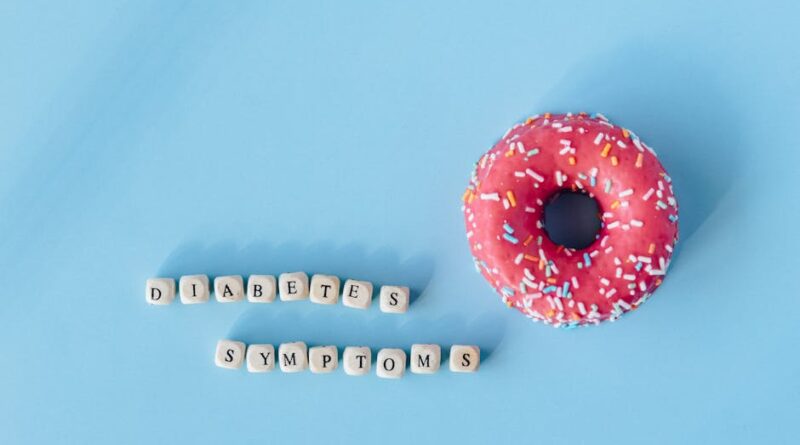Health Risks Linked to Elevated Cholesterol
Did you know that nearly 39 million adults in the U.S. have high cholesterol? That’s a staggering number! High cholesterol can lead to serious health issues, but many people don’t realize just how dangerous it can be. Lets dive into what you need to know about the health risks of elevated cholesterol.
What Is Cholesterol and Why Does It Matter?

Cholesterol is a waxy substance found in your blood. Your body needs cholesterol to build healthy cells, but too much can be harmful. There are two main types of cholesterol:
- LDL (Low-Density Lipoprotein): Often referred to as “bad” cholesterol, high levels can lead to artery blockage.
- HDL (High-Density Lipoprotein): Known as “good” cholesterol, it helps remove other types of cholesterol from your bloodstream.
In simple terms, think of LDL as a traffic jam in your arteries. Too much LDL can cause blockages, leading to serious health risks like heart disease.
What Are the Health Risks of High Cholesterol?

Elevated cholesterol levels can contribute to various health issues. Here are the most significant risks:
Heart Disease
Heart disease is the leading cause of death in the U.S. High levels of LDL cholesterol can build up in your arteries, making them narrow. This can lead to a heart attack.
Stroke
Similar to heart disease, high cholesterol can increase your risk of having a stroke. A stroke occurs when blood flow to the brain is blocked. If you have high cholesterol, you could be at a higher risk.
Peripheral Artery Disease (PAD)
PAD happens when narrowed arteries reduce blood flow to your limbs. This can cause pain and numbness in your legs. High cholesterol is a significant contributor to this condition.
Who Is at Risk for High Cholesterol?

While anyone can have high cholesterol, some people are more at risk than others. Factors include:
- Age: Cholesterol levels tend to rise as you get older.
- Family History: Genetic factors can play a role in your cholesterol levels.
- Diet: High-fat and high-sugar diets can raise cholesterol levels.
- Lack of Exercise: Physical inactivity can contribute to weight gain and higher cholesterol.
- Smoking: Smoking can lower HDL cholesterol and damage blood vessels.
Understanding these risk factors can help you take preventive measures. For instance, if heart disease runs in your family, it’s even more crucial to monitor your cholesterol levels.
How Can You Check Your Cholesterol Levels?

Getting your cholesterol checked is a simple process. A healthcare provider can perform a blood test called a lipid panel. This measures your total cholesterol, LDL, HDL, and triglycerides.
Generally, adults should get their cholesterol levels checked every four to six years. But if you have risk factors, you may need to check more often.
How Can You Lower High Cholesterol?
Good news! There are many ways to lower your cholesterol. Here are some effective strategies:
Eat a Heart-Healthy Diet
Focus on foods that can help lower cholesterol, such as:
- Fruits and vegetables
- Whole grains
- Nuts and seeds
- Fatty fish like salmon
- Olive oil
Try to limit saturated fats found in red meat and full-fat dairy products. Also, cut back on trans fats, often found in processed foods.
Stay Active
Exercise can help boost your HDL cholesterol. Aim for at least 150 minutes of moderate aerobic activity each week. This can be as simple as brisk walking or cycling.
Quit Smoking
If you smoke, quitting can improve your HDL cholesterol level. Plus, it reduces your risk for heart disease and improves overall health.
Limit Alcohol Intake
Drinking in moderation can help. For some, a small amount of alcohol can raise HDL cholesterol. But excessive drinking can lead to health problems, including high cholesterol.
Common Misconceptions About Cholesterol
There are many myths surrounding cholesterol. Lets clear up a few:
Does Eating Cholesterol Raise Your Blood Cholesterol?
Not necessarily! Foods high in cholesterol, like eggs, don’t always increase blood cholesterol levels. The biggest culprits are saturated and trans fats.
Is High Cholesterol Only a Concern for Older Adults?
No! While cholesterol levels do tend to rise with age, younger adults can also experience high cholesterol due to diet and lifestyle choices.
What Should You Do Next?
Monitoring your cholesterol levels is essential for maintaining heart health. Here are some actionable steps:
- Schedule a cholesterol check with your doctor.
- Evaluate your diet and make healthier choices.
- Incorporate more physical activity into your routine.
- Consider speaking with a healthcare provider about your risk factors.
Remember, it’s never too late to improve your health!
Conclusion: Take Action for Your Heart Health
Elevated cholesterol poses real health risks. By understanding these risks and taking proactive steps, you can protect your heart and overall well-being. don’t wait for a wake-up calltake charge of your health today!
For more information on heart health, visit the [American Heart Association](https://www.heart.org). And check out our post on [Easy Ways to Eat Healthier](https://www.example.com/easy-ways-to-eat-healthier) for tips on improving your diet.


